{Warning. Today’s post is a rant. So I’ve illustrated it with pretty flowers in soothing colors to make it more palatable.)
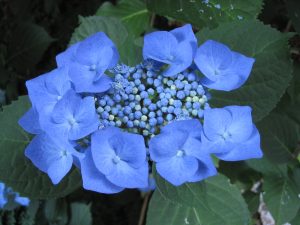
Anyone who gardens in the United States will be familiar with Master Gardeners. The Master Gardener program was started by Washington State University in 1971, when Extension agents in the largest urban counties found themselves overwhelmed with questions from the gardening public. These agents proposed training volunteers to help with educational outreach efforts, and with support from the university the first Master Gardener program was born. The history and function of Master Gardeners is further detailed in a couple of articles I co-authored (Chalker-Scott and Collman 2006 and Chalker-Scott and Tinnemore 2009): the more recent article also raises concerns about the decline of programmatic support in Washington state and elsewhere. If you’re a Master Gardener, the repercussions of this should alarm you.
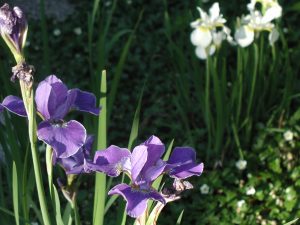
What makes a successful Master Gardener? According to Sharon Collman, the last surviving founding agent of the WSU program, it begins with this:
- A commitment to basic and advanced training program;
- An open-minded approach to continuing education of themselves as well as others;
- A willingness to provide science-based, unbiased information regardless of personal beliefs. (From Chalker-Scott and Collman, 2006)
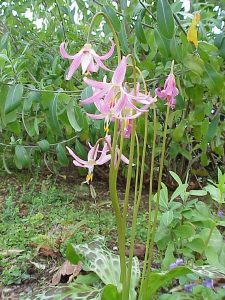
Pink fawn lily To be successful, volunteers need high-quality education consistently provided by university discipline experts. And that’s where the model is starting to fail in Washington state. Extension specialists who used to provide training to Master Gardeners in plant pathology, entomology, lawn and turf management, soil sciences, and other important fields have not been replaced by the university when they resign or retire. More and more training is left to the devices of individual counties, whose Extension funding from WSU has been gutted over the decades. The previous university-centric approach to Master Gardener training has devolved into volunteer-driven county programs with little educational oversight.
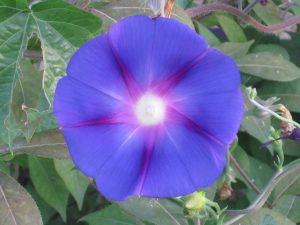
While counties should be commended for keeping programming alive in the face of crippling budget cuts, the lack of meaningful curricular oversight by the university means that volunteers often don’t get the most current and relevant information pertaining to the science of gardening. Worse, they may be taken in by popular products and practices with no basis in science. Other volunteers may let their personal beliefs interfere with their pledge to provide objective, science-based information on topics including pesticides, GMOs, and other controversial topics. This undermines the credibility of the county program and ultimately the university who claims these volunteers.
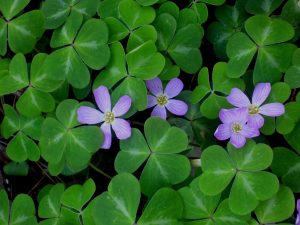
If you are a Master Gardener in Washington state or anywhere else in the U.S., it’s really incumbent upon YOU to insist that your land-grant university live up to its public outreach mission. You DESERVE access to Extension faculty specialists whose primary focus is to educate the gardening public. The university takes credit for your volunteer hours when they make reports to the state legislature. Make them earn it.
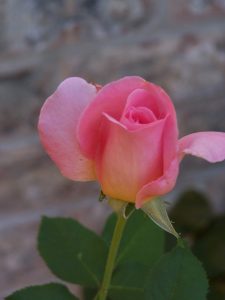
Don’t waste your time contacting the university – you’ll get nothing but platitudes there. The place for change to start is with your elected state representatives.
I have one of the largest master gardener programs in the state of Texas with over 400+ volunteers. Our 16 week training program is fortified with discipline University and trained extension personnel. I’m aware that some programs have deteriorated into volunteer run programs much as this one began to do a few years ago. We have re-organize the program to become what I feel, is one of the strongest programs in the state of Texas. If you are not careful the master gardener program can morph into a garden club rather than an educational entity.It is incumbent on every master gardener Coordinator to make sure that their program represents the highest quality of research based information from a land grant institution
Well said, Stephen. And I would add that it’s crucial for every county coordinator maintains close ties to state faculty specialists to make sure they are getting the newest information available.
As a side note, I had the second oldest master gardener program in the United States in Vancouver Washington. I’ve also established and had Master Gardener programs with Cornell university, Purdue University, Ohio State University and now here in the state of Texas
Unfortunately, both the PA and NM MG programs I completed were a joke. Most of our instructors had no connection to the university and simply read from the manual or the PPT slides.
Ellen, sorry your MG program in Pa. was a joke. Our MG program in Allegheny County is taught by Extension personnel and they are great. In fact many of them contributed to the Master Gardener Manual that won the GWA gold award last year.
My first B.S. degree is in Agricultural Engineering Technology from Cornell. My second is in Environmental Science from U. Washington, Tacoma. I took the Oregon State University MG course in ’95. A few years later, I worked in a Washington State University lab where I’d run into Van Bobbit, onetime state MG program head, in the lunch room. This is all to say that I am science based, and familiar with the program as it stood 23 years ago.
There’s a logical fallacy called appeal to authority, and you’ve made that mistake. Science is not settled, but is an ongoing search for understanding. 23 years ago, the stated philosophy of the OSU MG program was Integrated Pest Management. Yet one of the instructors, lecturing about strawberry culture, recommended spraying the plot with a broadspectrum biocide before planting. Experts in many fields quibble about details, and differences of opinion are normal.
Some will tell you there’s nothing wrong with glyphosate because experts say so. Meanwhile, there are strong hints that it’s related to many cancers and to the increase in autism spectrum disorders. Some will tell you there’s nothing wrong with GMOs, yet the main reason for genetic modification is to make them pesticide tolerant, so they can be doused with more poisons. And then there are the concerns about shrinking seed diversity and contamination of heirloom crops with those genetics, and the resulting lawsuits when the corporation finds that a farmer is re-planting seed from crops they’ve contaminated.
Funding for agenda-free science would be great. But in its absence, stop braying about the problem of people who don’t toe the corporate line.
Part of what a good MG program does is teach people to be scientifically literate. I’d suggest you may want to look at the publication I wrote with a colleague on the topic (http://cru.cahe.wsu.edu/CEPublications/EM100E/EM100.pdf). We discuss the differences between correlation and causation, and the scientific fallacy of conflating the former to the latter. You’ll find no reputable scientist claiming that glyphosate causes cancers or autism. Understanding this and then explaining it to laypeople is a skill a trained MG can learn to do. But letting one’s personal beliefs override a commitment to a university to make recommendations using only objective, science-based information is the antithesis of what the MG program is intended to be – anywhere.
I fail to see how my post represents an appeal to authority. No one is claiming science is settled, and certainly not in the rapidly changing fields of urban horticulture and arboriculture. And if you are concerned with logical fallacies, why do you stoop to ad hominem attacks?
There you are simply wrong. I shall take my leave.
Run. Scomber, run! You’ve been outwitted, and outthought!
Amen, Linda. Unfortunately, I don’t think this is solely within WSU or the MG program, but the cultural state of the U.S. as a whole. Whole institutions are becoming personal, vogue agenda ‘clubs’, locally and nationally, regardless their founding mission.
That said, the MG is my backyard, so to speak. Where might we find a list of (very) brief speaking points, which your audience can use when addressing their representative(s)?
Who are my Representatives, by Home Address
http://www.commoncause.org/find-your-representative
Effective communication with Elected Officials
https://gumroad.com/l/callthehallsguide
Nice photos!
Thanks, Randy!
Rather than give a list of speaking points, I’m hoping interested people can read the 2009 article I linked in the blog post. It is not technical and it contain a discussion of the value that MGs can bring to a community.
I’ve copied the most relevant part of this article. But the article is focused on the continued gutting of many extension programs and is worth including in any appeal to the state.
“The Washington State University (WSU) Master Gardener Program was founded to create citizen scientists who, guided and trained by faculty from land-grant universities, could informally educate local community members in the application of horticultural science for the sustainable management of landscapes and gardens. While the program embraces all of the principles embodied in Extension education, two of them – linking research to practical application and lifelong active learning – are especially relevant to informal education. Packaged in a non-threatening, apolitical format and presented by volunteers who are relatives, friends, and neighbors, the information available from the WSU Master Gardener Program allows individuals to make small but meaningful improvements in areas including water conservation and quality, reduction of the economic and ecological damage by invasive species, pesticide and fertilizer reduction, carbon dioxide sequestration by planting more trees, and habitat restoration. Increasingly, Master Gardener volunteers are becoming involved in urban landscape management as presented at the 2002 EMSU conference [16,17].
“Master Gardener volunteers work directly with populations least likely to encounter or seek formal environmental information, such as families on welfare, tribal groups, and at-risk youth. The language of gardening reaches all citizens and serves to introduce the more globally important values of sustainable living in a palatable fashion. Furthermore, studies have demonstrated that people prefer to get information from people like themselves; Master Gardeners are effective in the sense that they will reach informal audiences of relatives, friends, and neighbors in addition to their more formal roles as educators. This effectiveness in public outreach has been demonstrated repeatedly in the last 30 years in Washington State [18].”
Well said! I wish my county still had MG classes available.
I just finished your Teaching Company lecture series and suggest your critics watch it as you had more time to dig deeper into gardening issues. I loved it because I feel vindicated since you endorsed my
gardening practices like preferring bare root stock and mulching the tar out of everything.
I am in Utah, but originally from the Northwest so I had to change many practices. One thing I learned was that mulch fixes everything. It heals the soil top down and the bugs do all my digging for me.
More recently I switched to compost made from biosolids and yard waste made locally. Suddenly I had cilantro overwintering under the snow. Everything got sturdier. The fine mulch made for a very green lawn that started to develop proper soil just by top dressing. In my last house my neighbor watered her lawn twice a day because our sandy soil caused water to leach through fast. I watered twice a week in the hottest times and my lawn was greener and healthier. I have fewer pest problems.
The only pesticide I use is glyphosate and mostly either when rehabilitating a new yard or for noxious weeds. I fear the spraying fields of GMO crops will cause resistance much as over use of anitbiotics causes resistance.
My current home is on a clay/rock hillside. I have found that if I plant very small bare root roses they adapt and work their roots through the rocks with little effort on my part. My former favorite nursery switched to root bound gallon size and the rose died. I have found a new nursery. It seems their customers did not want to pay for tiny young plants. Another favorite nursery that sold bare root roses is no longer running.
I lived in Bellevue years ago and love the Bellevue Botanical Gardens. I also got my BS from Oregon State in Food Science and my husband got a math PhD from WSU in Pullman. I have gardened in may climates.
Just before I watched your course I was telling my neighbor not to use weed fabric. Now I have a bona fide scientist to back me up.
Water use could drop dramatically here if people could become more informed. Maybe some day I will take a MG course to get credentialed.
I hope you produce more courses for The Great Courses
Elizabeth, I’d love to do more courses! Perhaps a whole series on gardening myths – you should let The Teaching Company know.
Thanks for letting us know how well the science of gardening has helped you in your own landscape. I hope this will become an increasing trend with home gardeners.
Congrats on the Teaching Course…I met one of your students at a dinner party way out in Cape Breton the other night. Your reach is long (thank goodness).
Thank you! And I love the “small world” stories. Do you remember the student’s name?
J. Eyking
Doesn’t ring a bell…but my teaching career spanned decades and several institutions. Thanks for taking the time!
Can the 2009 article be updated as the link is broken. Or give me the title and I will search myself.
I checked both article links and they are functional. You might try again. In any case, the article name is “Is community-based sustainability education sustainable? A general overview of organizational sustainability in outreach education.”